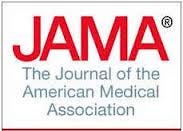A study finds, hospitals profit from surgical errors.

Hospitals make money from their own mistakes because insurers pay them for the longer stays and extra care that patients need to treat surgical complications that could have been prevented, a new study finds.
Changing the payment system, to stop rewarding poor care, may help to bring down surgical complication rates, the researchers say. If the system does not change, hospitals have little incentive to improve: in fact, some will wind up losing money if they take better care of patients.
The study and an editorial were published Tuesday in The Journal of the American Medical Association. The study authors are from the Boston Consulting Group, Harvard’s schools of medicine and public health, and Texas Health Resources, a large nonprofit hospital system.
The study is based on a detailed analysis of the records of 34,256 people who had surgery in 2010 at one of 12 hospitals run by Texas Health Resources. Of those patients, 1,820 had one or more complications that could have been prevented, like blood clots, pneumonia or infected incisions.
The median length of stay for those patients quadrupled to 14 days, and hospital revenue averaged $30,500 more than for patients without complications ($49,400 versus $18,900). Private insurers paid far more for complications than did Medicare or Medicaid, or patients who paid out of pocket.
The authors said in an interview that they were not suggesting that hospitals were trying to make money by deliberately causing complications or refusing to address the problem.
“Absolutely not,” said David Sadoff, a managing director of the Boston Consulting Group. “We don’t believe that is happening at all.”
But, he said, the current payment system makes it difficult for hospitals to perform better because improvements can wind up costing them money.
Susan Pisano, a spokeswoman for America’s Health Insurance Plans, a trade group for insurance companies, said in an interview that the study illustrated that the entire health care system needed to move away from what she called “the perverse incentives of the old fee-for-service system that emphasized quantity over quality, and toward methods of payment that reward better care.” http://www.nytimes.com/2013/04/17/health/hospitals-profit-from-surgical-errors-study-finds.html?partner=rss&emc=rss&_r=1&
Patients with surgical complications provide greater hospital profit-margins:
http://www.hsph.harvard.edu/news/press-releases/patients-with-surgical-complications-provide-greater-hospital-profit-margins/


